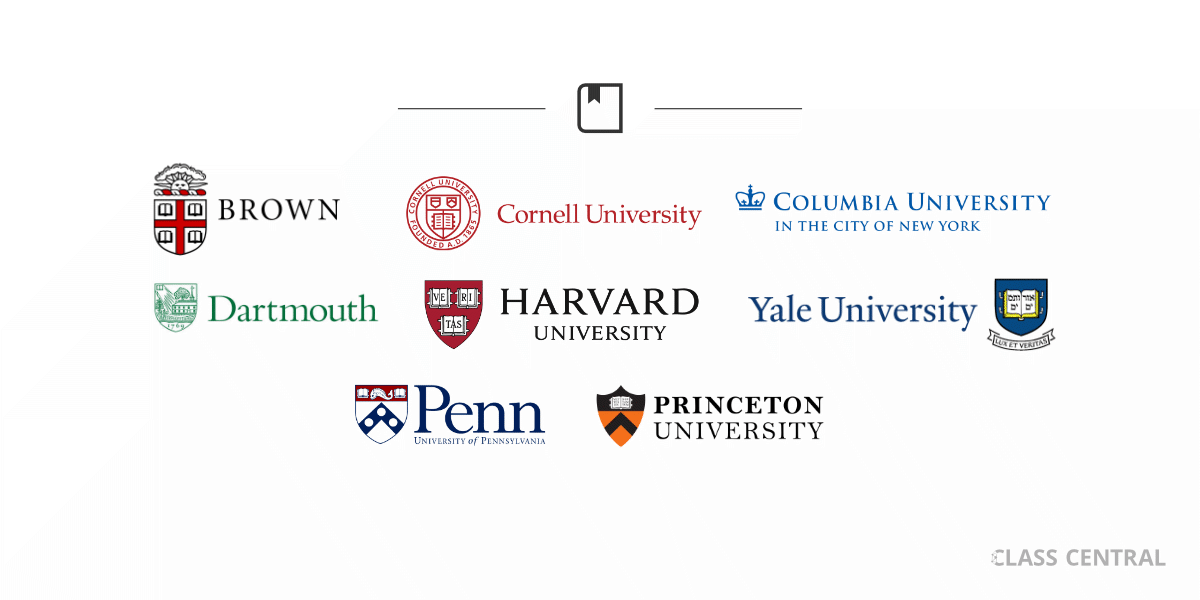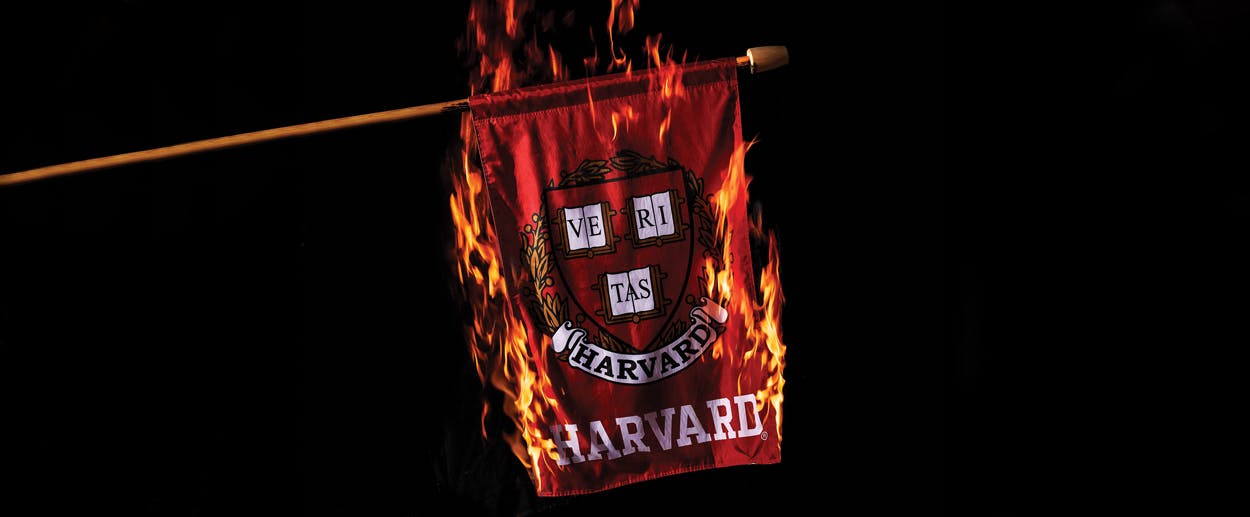These eight schools have a reputation for being highly selective during their admissions process. According to USA Today, these schools have some of the lowest acceptance rates of admissions, averaging less than 10 percent of students received an admissions offer. Harvard University received 39,494 applicants for the Class of 2021.
The prior year, the institution accepted a record low of 5.2 percent of applicants. Although Cornell University has the highest acceptance rates of all Ivy League schools, this does not mean that it's an easy school to get into. To be a competitive applicant for any of these eight prestigious institutions, you cannot slack off when it comes to your applications. Start planning your acceptance strategies early, which means studying hard at school and planning ahead for your standardized tests. If you have not been involved in an extracurricular activity since childhood, plan to seriously commit to an activity as early as you can. Choose something you love to do as this will be evident in your application components.
Most importantly, do not choose to go to an Ivy League school for appearances. Choose a program you actually want to attend and graduate from, rather than a program that will look good on your CV. Prestige and social status do not necessarily translate into better educational fit for you. Choose happiness and invest in your education in a school you truly want to attend. The college admissions process is often confusing and even a bit nerve-wracking especially when you're applying to a prestigious and highly selective university.
For over a decade, we've been helping students just like you master the college application process and nail their applications. In fact, 75% of the students we work with get accepted into an Ivy League school or Top 10 university. It is easy to say "plan ahead", but there is a lot of advantage in knowing what school and program you would like to attend in the future. If you are certain about which school you want to enroll in, it might be wise to apply through the Early Action/Early Decision program.
This way, your deadline for application is earlier, but so is your response date. To utilize this opportunity, you must research your school of choice and determine whether you are a good fit for the program to which you're applying. Early Action programs give you an early answer as to where you stand in the admissions process. According to most recent data, Cornell's acceptance rates for their early decision program is 22.7%! Yale University is known for its drama and music programs at the well-regarded Yale School of Drama.
Undergraduate students at this research institution have made strides in many fields, discovering new species and patenting products. Students can take advantage of global learning opportunities, from studying abroad to embarking on international internships and directed research. The most popular majors at Yale include social sciences; biological and biomedical sciences; history; mathematics and statistics; and engineering. Harvard University is probably the most well-known Ivy League school. It is located in Cambridge, Massachusetts, and is a medium-sized school with around 7,000 undergrad enrollments. Harvard is also a very competitive school as the acceptance rate is only 5%.
Accepted students' SAT grades typically range from 1460 to 1580, and their ACT grades range between 33 and 35. Harvard is rated #1 for biology studies and political science studies according to Niche's 2020 Best Colleges. University of the People is a member ofHarvard Business School Online's (HBS Online's) Collaborating Colleges program. Harvard Business School Online offers a unique and highly engaging way to learn vital business concepts via an innovative online platform that brings the Harvard Business School classroom to you. The Ivy League schools are usually quick to publish results for the current admissions cycle as soon as admissions decisions have been delivered to applicants. Typically the latest numbers become available in the first day or two of April.
Keep in mind that the acceptance rates announced in April often change slightly over time as colleges work with their waitlists in the spring and summer to make sure they meet their enrollment goals. For the class of 2024, Cornell has decided to hold back their admissions numbers so that they aren't contributing to the frenzy of data comparisons. Dartmouth College is the birthplace of the programming language BASIC, which gave way to other computing innovations.
The college includes the highly ranked Tuck School of Business, which houses the world's first graduate school of management, as well as Thayer School of Engineering and Geisel School of Medicine. Dartmouth established one of the first Native American programs in the country to begin actively recruiting students and has more Native American graduates among its alumni than any other Ivy League institution. The college has more than 50 research-focused centers, institutes, and groups in areas ranging from medicine and the arts to engineering and business. With a 7-to-1 student-faculty ratio and more than 60% of classes with fewer than 20 students, Dartmouth allows students to learn in an intimate setting. More than 50% of students study through off-campus programs for an immersive, global, and hands-on education that doesn't interrupt their academic plan. The college is also ranked No. 2 in our Best Colleges for Veterans ranking.
These schools are still highly competitive, but less so than tier 1. While they have similar demands for academic excellence and extracurricular achievement, the number of students who apply to them is smaller, meaning that each qualified student has a greater chance of acceptance. This system is exacerbating inequality, retarding social mobility, perpetuating privilege, and creating an elite that is isolated from the society that it's supposed to lead. In 1985, 46 percent of incoming freshmen at the 250 most selective colleges came from the top quarter of the income distribution. As of 2006, only about 15 percent of students at the most competitive schools came from the bottom half. The more prestigious the school, the more unequal its student body is apt to be.
As of 2004, 40 percent of first-year students at the most selective state campuses came from families with incomes of more than $100,000, up from 32 percent just five years earlier. Although it's important to always aim for the sky and dream big, setting realistic goals for yourself is just as important. Hundreds of colleges out there can deliver better education to admitted students than the Ivies. Many of these schools, like "Public Ivy" universities are also more accessible and offer lower tuition fees, considering how the Ivies do not offer applicants any merit-based financial aid (only need-based aid). What used to be a last resort for students who were underqualified for the Ivies is now just as competitive and at the top of many a college wish list.
Its location in the heart of Music City is part of the appeal, but so are the academics and campus life. Undergraduate research opportunities are plentiful, and they're integrated into every field of study, and the university is currently pending more than $600 million to convert its dorms into LEED-certified residential colleges. According to the Princeton Review, Vanderbilt also has the happiest students. The acceptance rates are so low that thousands of exceptional students get rejected.
Your eight AP classes, 4.0 unweighted GPA and 1580 SAT score are not a guarantee of admission (although it certainly helps!). Ever year, I encounter heart-broken students who falsely assumed they would get into at least one of the Ivies only to end up with a stack of rejections. Always apply to a few schools that are less selective even if you're an impressive student. The term Ivy League is used to refer to the athletic conference that was created by eight highly esteemed private universities in the Northeastern United States. Howard and Matthew Greene co-authored the book in which 63 colleges were identified for their similarities to the Ivy League.
Some of the overarching characteristics included a low acceptance rate, academic rigor, liberal arts education, and smaller size. It was written to help students who don't get into the Ivies to find suitable schools that still meet their academic goals. Similar to a high GPA, high SAT or ACT scores demonstrate your academic aptitude to the admissions committee. An excellent way to gauge if your score is in the ballpark of where you need it to be for your application to an Ivy League school is to check its class profiles. Often, schools will list the average scores of all admitted students.
Your high school coursework is the biggest evidence of your academic abilities. The single most important document in your application is your high school transcript. Not only does it tell the admissions committee what kind of grades you received throughout the years, it also demonstrates your drive, dedication, and improvement over time. Impress the adcoms with a broad range of challenging courses, that you enjoy and find interesting. Try to take courses in different disciplines, including sciences, arts, humanities, and languages.
To increase your chances of success, take courses in disciplines you typically ace but do not forget to complete necessary requirements for graduation. You can find a study partner, ask your teacher for help, get a tutor, or design a study plan that would increase your understanding of the content. However, the university also offers highly rated programs in the humanities and social sciences, with popular majors including public health and international studies. Moreover, undergraduates praise the school's financial aid offering.
News data, the mean aid package totals $47,492, and the college's alumni earn an average starting salary of $62,700. D3 programs offer a more well-rounded college experience where academics take more of the lead. Just like their D1 and D2 counterparts, D3 athletes also must learn to manage playing their sport while pursuing their education. The time commitment, however, for D3 athletes is not nearly as intense which gives them more opportunity to explore life outside of the classroom and outside of their sport. D3 athletes often feel they are more a part of the general college community where D1 and D2 athletes feel a little more separated from the rest of the college or university.
A lot of students throw applications to Ivy League Schools because of the "prestige" that comes with attending a university of that caliber. If you're applying to an Ivy, you should genuinely want to go there. Your application should demonstrate how you would make the most of the academic, research, and extracurricular opportunities offered by the school.
You should also be sure to emphasize how you would be a good fit for the programs and environment at each school specifically. Ivy League undergraduate admissions are difficult to assess because each school claims to take a holistic approach to reviewing students' applications. A holistic application review considers a broad range of student's accomplishments and circumstances. This allows admissions committees to consider your candidacy as a whole, rather than focusing on only one component of your application. A good example of this theory is the elimination of GPA stats for Brown's applicants. The college announced that it does not calculate its students' GPA and relies on other criteria for evaluation, such as students' coursework, course performance reports and letters of recommendation.
As you might have noticed, the majority of the Ivy League schools do not have specific GPA or standardized test score requirements – all of this is meant to demonstrate that no ONE application component outweighs the other. The Ivies also recognize that some students have access to more academic opportunities than other applicants. If you study in a rural school with only a few opportunities for academic excellence, then admissions officers at the Ivies will take your situation into consideration. A letter of recommendation and measures like your ACT and SAT scores will be more important when the admissions office evaluates your preparedness for higher learning.
Relatedly, many public universities offer special programs or honors colleges, just as several Public Ivies do. Not only do these programs allow your child to obtain a more intimate college experience, they also tend to offer greater academic challenges due to their more selective admissions processes. Nevertheless, competition for acceptance into many Public Ivies has grown increasingly stiff, particularly as these schools become more desirable to out-of-state applicants.
Many public universities are required to accept a certain percentage of in-state applicants, which typically puts out-of-state applicants at a disadvantage. That's why, when evaluating acceptance rates at Public Ivies, it's a good idea to research what admissions policies your state's Public Ivy has in regard to in-state and out-of-state applicants. The institution was founded in 1746, making it the fourth oldest university in the United States.
It is a medium-sized institution with around 5,000 undergraduate enrollments, and like Harvard, has an extremely competitive acceptance rate of only 5%. Some of its most popular degrees include computer engineering, public policy analysis, and economics. It is rated #2 of the best colleges in America to study political science and public policy analysis. SAT grades range from 1440 to 1570 and ACT grades range between 32 and 35. In your search for quality education institutions in the US, the name Ivy League is bound to come up.
The elite group of educational institutions has been a constant source of fascination and aspiration amongst students who wish to pursue higher studies in the United States. But what is Ivy league exactly, who all are included in the list of ivy league colleges? Shooting for selective colleges can be daunting, as only a few students can reasonably expect to stand a chance in admissions. You may look at the low acceptance rates and wonder what your chances actually are of getting in. Given that there are more qualified candidates than spots at highly selective schools, it makes sense to include schools on your list that offer intellectual rigor, but have higher acceptance rates.
Some on this list may be familiar to you, but others may be hidden gems. Although lesser known as a liberal arts college, Williams is one of the best non-Ivy colleges in the nation, with majors ranging from economics to political science, government, and history. Additionally, Williams offers courses in the style of the tutorial system employed by Oxford and Cambridge. Consisting of a professor and two or three students, these tutorials allow undergraduates to learn in an intimate, personalized atmosphere.
During their free time, Williams students enjoy plenty of outdoor activities in Western Massachusetts, such as hiking, canoeing, and cross-country skiing. While it's true that getting into the Ivies is difficult, it's easier to get admitted into some of them. This allows students to apply to Ivy League schools that are likely to welcome them. This means that of every 100 people who apply, fewer than 10 will be accepted.
These schools want academic excellence and stellar extracurriculars, but those are only enough to get you into contention. MIT has reported that 70% of the students who apply are academically qualified, yet have an admission rate of 7%. Your test scores aren't the only things that elite universities look at when they review your entire application.
Looking back, I think it's a shame that I was disappointed with my score at the time, because it doesn't define me as a person — and it certainly didn't define my college applications. Now, if all schools consider these factors important in their admissions processes, consider how uncompromising Ivy League schools will be in their applicant choices. Due to the highly selective admissions process of these schools, they put a lot more value in all these factors. They place more emphasis on grades and college prep courses; they pay more attention to your essay and writing sample; and they will certainly take a closer look at your recommendation letters, as well as your extracurriculars.
You must not give admissions committees any reason to cut you out of the applicant pool. The next thing you might want to know is how to apply for ivy league colleges? Since Ivy League Institutions are some of the top-ranked universities in the world, the application and admission process is highly competitive. Vanderbilt University is a private university in Nashville, Tennessee.
Its 10 schools offer undergraduate programs in the liberal arts and sciences, engineering, music, education and human development, and graduate programs in medicine, law, management, and more. Leadership is at the core of the educational experience at this liberal arts college, which has produced VIPs like former AOL CEO Steve Case, legendary composer Stephen Sondheim, and Morning Joe co-host Mika Brzezinski. Since 1997, leadership studies has even been offered as its own concentration, blending political science, anthropology, and history. The low acceptance rates apply to each school's entire applicant pool; therefore, this rate should not be taken as your own personal chance of acceptance. One way to better understand your personal rate of acceptance is to compare against students with your background and to be able to compare all aspects of your profile .
























No comments:
Post a Comment
Note: Only a member of this blog may post a comment.